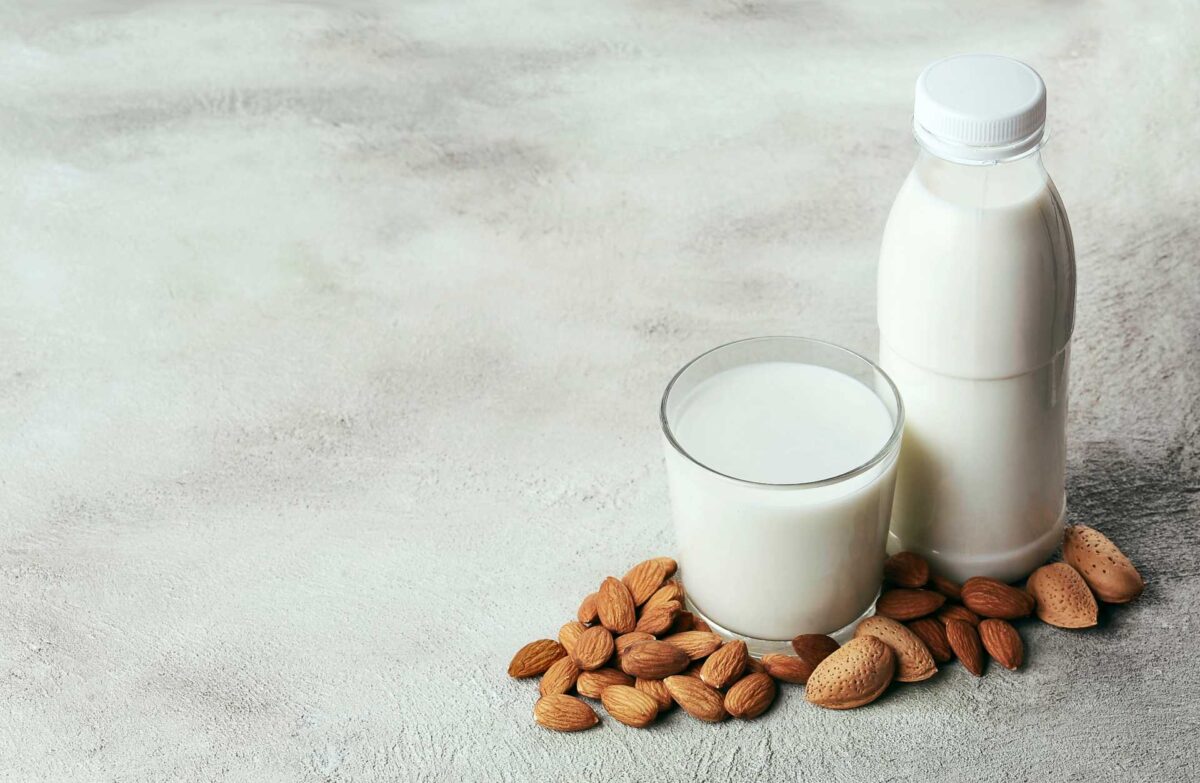However, the rising demand for plant-based diets and the need to cater to lactose-intolerant individuals have led to a surge in the popularity of plant-based milks. These alternatives can vary widely in their glycemic responses. Some plant-based milks, such as those made from soy and almonds, can have glycemic indices comparable to cow’s milk, making them suitable for maintaining stable blood sugar levels.
Comparing Glycemic Index of Common Plant-Based Milks
Recent research has shed light on the glycemic responses of both milk and plant-based alternatives. Shkembi and Huppertz (2023) conducted a comprehensive analysis of these beverages, providing valuable insights into their impact on blood sugar levels. Additionally, Jeske et al. (2017) specifically investigated the glycemic index (GI) of a wide range of commercial plant-based milk substitutes.
Here are the key findings from the study, showcasing the glycemic indices of various plant-based milks and explaining why their GI values differ:
| Plant-Based Milk |
Glycemic Index (GI) |
Explanation |
| Soy Milk |
34 |
High protein content slows digestion, leading to a lower GI similar to cow’s milk. |
| Calcium-Enriched Organic Soy Drink |
48 |
Comparable to cow’s milk due to added calcium and high protein levels. |
| Wholebean Soya Milk |
49.49 |
Low GI due to the high protein content and minimal processing, which retains more natural fibers and nutrients. |
| Almond Original |
49.10 |
Similar to soy milk, its lower GI is due to added stabilizers and fortifications. |
| Macadamia Milk |
49.47 |
Lower GI attributed to high fat content and moderate protein levels. |
| Quinoa Milk |
53.28 |
Lower GI due to high protein content and presence of 20-hydroxyecdysone, which helps manage blood sugar levels. |
| Soya Drink Calcium |
47.53 |
Low GI due to high protein and added calcium, making it similar to cow’s milk. |
| Carob Almond Milk |
54.33 |
Moderate GI, influenced by the presence of carob, which adds carbohydrates but also some fibers. |
| Cashew Milk |
52.82 |
Cashew milk has a lower GI due to its natural fats and proteins that slow digestion. |
| Hazelnut Milk |
55.76 |
Moderate GI, as it contains natural fats that moderate sugar absorption, but also has added sugars. |
| Oat Milk |
59.61 |
Contains soluble fiber β-glucan which helps lower the GI, but overall carbohydrate content keeps it moderately high. |
| Hemp Milk |
59.94 |
Contains healthy fats and proteins, which help lower the GI, though it’s still relatively high due to the carbohydrate content. |
| Almond Milk |
58.68 |
Contains moderate protein and fat, but higher GI due to lower fiber content compared to soy milk. |
| Soya Original |
61.50 |
Higher GI than other soy drinks due to added sugars, but still lower than rice and coconut milks. |
| Organic Almond Drink |
64.21 |
Higher GI due to added sugars and lower protein content. |
| Rice Milk |
97.74 |
Very high GI due to high glucose content, leading to rapid blood sugar spikes. |
| Brown Rice Milk |
99.96 |
Similar to rice milk, with a high GI from glucose and maltose content. |
| Coconut Milk |
96.82 |
Very high GI, primarily due to added sugars which lead to rapid glucose absorption. |
Factors Influencing Glycemic Index in Plant-Based Milks
The glycemic index (GI) of plant-based milks is influenced by several key components:
Protein content plays a crucial role in determining GI. Higher protein levels, as found in soy milk, can slow digestion and lead to a lower GI. In contrast, milks with lower protein content may have a higher GI.
The type and amount of sugars also impact GI. Glucose and maltose, often found in rice milk, are rapidly absorbed, leading to a higher GI. Fructose, common in nut-based milks, is metabolized more slowly. Additionally, added sugars can significantly increase a milk’s GI.
Fat content can influence GI by slowing digestion. Milks with higher fat content, like almonds and macadamia, tend to have lower GIs due to slower sugar absorption.
Finally, fiber content is essential. Soluble fiber, such as beta-glucan in oat milk, can effectively lower GI by slowing carbohydrate digestion.
The Health Benefits of Low-Glycemic Plant-Based Milks
Choosing plant-based milks with a low glycemic index offers numerous health benefits. Low-GI foods are digested and absorbed more slowly, resulting in a gradual rise in blood sugar and insulin levels. This can help improve satiety, reduce hunger, and manage energy levels throughout the day. For individuals managing conditions like diabetes or those looking to maintain stable blood sugar levels, low-GI plant-based milks are an excellent choice.
For example, soy milk and almond milk are notable for their low GI, making them suitable for health-conscious consumers. These milks not only help in managing blood sugar levels but also provide essential nutrients like protein, vitamins, and minerals, contributing to overall health and well-being.
Innovating the Future of Plant-Based Milks
The future of plant-based milks lies in innovation and improved nutritional profiles. Food and nutrition companies have the opportunity to explore new formulations and ingredients that enhance the health benefits of these alternatives. Optimizing protein, fat, and fiber content can transform plant-based milks into delicious beverages and nutritional powerhouses that support blood sugar management and overall health.
Innovative approaches, such as fortifying plant-based milks with additional nutritious add ons like almond butter or developing new processing methods to retain more natural fibers and proteins, can significantly improve the GI and overall nutritional value of these products. As the market for plant-based milks continues to grow, ongoing research and development will be essential in meeting consumer demands and promoting better health outcomes.
Craft Premium Plant-Based Milk Using Harris Woolf Almonds
Creating low-Glycemic beverages? Start with our almonds.
Harris Woolf Almonds are the perfect foundation for your next plant-based milk. Our California almonds are lovingly grown with both the planet and your customers in mind. Renowned for their rich taste and premium quality, they’re the ideal starting point for crafting exceptional low-glycemic beverages.
But we don’t stop there! Our almond butter and paste are the perfect complementary ingredient to your formulation,adding a creamy texture, delicious flavor, and a healthy dose of good fats. Together, they create a winning combination that satisfies taste buds and nutritional needs.
We’re your partners in almond innovation. From concept, customization, to commercialization, our team is dedicated to delivering the highest quality almond ingredients. Let’s work together to create a truly exceptional product.
Contact us today!













